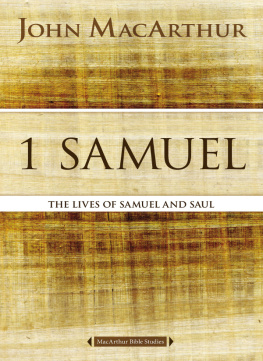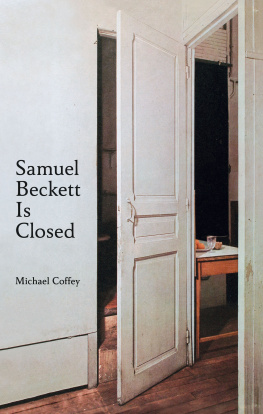THIS IS A BORZOI BOOK PUBLISHED BY ALFRED A. KNOPF
Copyright 2016 by Nathan Hill
All rights reserved. Published in the United States by Alfred A. Knopf, a division of Penguin Random House LLC, New York, and distributed in Canada by Random House of Canada, a division of Penguin Random House Canada Limited, Toronto.
www.aaknopf.com
Knopf, Borzoi Books, and the colophon are registered trademarks of Penguin Random House LLC.
Grateful acknowledgment is made to Wisdom Publications for permission to reprint an excerpt from In Buddhas Words by Bhikkhu Bodhi, copyright 2005, 2015 by Bhikkhu Bodhi. Reprinted with permission of Wisdom Publications (www.wisdompubs.org).
Library of Congress Cataloging-in-Publication Data
Names: Hill, Nathan, [date] author.
Title: The nix : a novel / Nathan Hill.
Description: First edition. | New York : Knopf, [2016]
Identifiers: LCCN 2015046704 | ISBN 9781101946619 (hardcover) | ISBN 9781101946626 (ebook) | ISBN 9780451494252 (open market)
Subjects: LCSH : Family secrets. | Mothers and sonsFiction. | Self-realizationFiction. | BISAC : FICTION / Literary. | FICTION / Family Life. | FICTION / Humorous.
Classification: LCC ps3608.i436 n59 2016 | DDC 813/.6dc23 LC record available at http://lccn.loc.gov/2015046704
ebook ISBN9781101946626
This is a work of fiction. Names, characters, places, and incidents are the product of the authors imagination or are used fictitiously. Any resemblance to actual persons, living or dead, events, or locales is entirely coincidental.
Cover image: Parade and Rally for Freedom, Grant Park, Chicago, Illinois, April 27, 1968.
Print: Chicago History Museum
Cover design by Oliver Munday
v4.1
ep
Contents
For Jenni
There was a king in Svatthi who addressed a man and asked him to round up all the persons in the city who were blind from birth. When the man had done so, the king asked the man to show the blind men an elephant. To some of the blind men he presented the head of the elephant, to some the ear, to others a tusk, the trunk, the body, a foot, the hindquarters, the tail, or the tuft at the end of the tail. And to each one, he said, This is an elephant.
When he reported to the king what he had done, the king went to the blind men and asked them, Tell me, blind men, what is an elephant like?
Those who had been shown the head of the elephant replied, An elephant, your majesty, is just like a water jar. Those who had been shown the ear replied, An elephant is just like a winnowing basket. Those who had been shown the tusk replied, An elephant is just like a plowshare. Those who had been shown the trunk replied, An elephant is just like a plow pole. Those who had been shown the body replied, An elephant is just like a storeroom. And each of the others likewise described the elephant in terms of the part they had been shown.
Then, saying, An elephant is like this, an elephant is not like that! An elephant is not like this, an elephant is like that! they fought each other with their fists.
And the king was delighted.
Inspired Utterances of the Buddha
PROLOGUE
Late Summer 1988
IF SAMUEL HAD KNOWN his mother was leaving, he might have paid more attention. He might have listened more carefully to her, observed her more closely, written certain crucial things down. Maybe he could have acted differently, spoken differently, been a different person.
Maybe he could have been a child worth sticking around for.
But Samuel did not know his mother was leaving. He did not know she had been leaving for many months nowin secret, and in pieces. She had been removing items from the house one by one. A single dress from her closet. Then a lone photo from the album. A fork from the silverware drawer. A quilt from under the bed. Every week, she took something new. A sweater. A pair of shoes. A Christmas ornament. A book. Slowly, her presence in the house grew thinner.
Shed been at it almost a year when Samuel and his father began to sense something, a sort of instability, a puzzling and disturbing and sometimes even sinister feeling of depletion. It struck them at odd moments. They looked at the bookshelf and thought: Dont we own more books than that? They walked by the china cabinet and felt sure something was missing. But what? They could not give it a namethis impression that lifes details were being reorganized. They didnt understand that the reason they were no longer eating Crock-Pot meals was that the Crock-Pot was no longer in the house. If the bookshelf seemed bare, it was because she had pruned it of its poetry. If the china cabinet seemed a little vacant, it was because two plates, two bowls, and a teapot had been lifted from the collection.
They were being burglarized at a very slow pace.
Didnt there used to be more photos on that wall? Samuels father said, standing at the foot of the stairs, squinting. Didnt we have that picture from the Grand Canyon up there?
No, Samuels mother said. We put that picture away.
We did? I dont remember that.
It was your decision.
It was? he said, befuddled. He thought he was losing his mind.
Years later, in a high-school biology class, Samuel heard a story about a certain kind of African turtle that swam across the ocean to lay its eggs in South America. Scientists could find no reason for the enormous trip. Why did the turtles do it? The leading theory was that they began doing it eons ago, when South America and Africa were still locked together. Back then, only a river might have separated the continents, and the turtles laid their eggs on the rivers far bank. But then the continents began drifting apart, and the river widened by about an inch per year, which would have been invisible to the turtles. So they kept going to the same spot, the far bank of the river, each generation swimming a tiny bit farther than the last one, and after a hundred million years of this, the river had become an ocean, and yet the turtles never noticed.
This, Samuel decided, was the manner of his mothers departure. This was how she moved awayimperceptibly, slowly, bit by bit. She whittled down her life until the only thing left to remove was herself.
On the day she disappeared, she left the house with a single suitcase.
| PART ONE |
THE PACKER ATTACKER
Late Summer 2011
1
THE HEADLINE APPEARS one afternoon on several news websites almost simultaneously: GOVERNOR PACKER ATTACKED!
Television picks it up moments later, bumping into programming for a Breaking News Alert as the anchor looks gravely into the camera and says, Were hearing from our correspondents in Chicago that Governor Sheldon Packer has been attacked. And thats all anyone knows for a while, that he was attacked. And for a few dizzying minutes everyone has the same two questions: Is he dead? And: Is there video?
The first word comes from reporters on the scene, who call in with cell phones and are put on the air live. They say Packer was at the Chicago Hilton hosting a dinner and speech. Afterward, he was making his way with his entourage through Grant Park, glad-handing, baby-kissing, doing all your typical populist campaign maneuvers, when suddenly from out of the crowd a person or a group of people began to attack.












